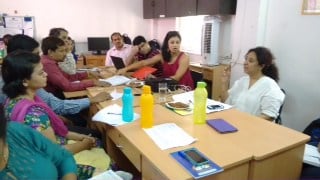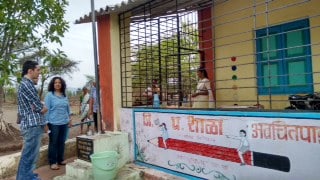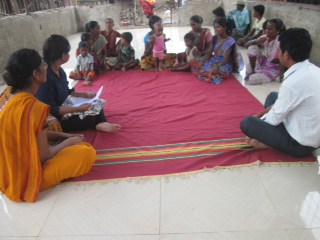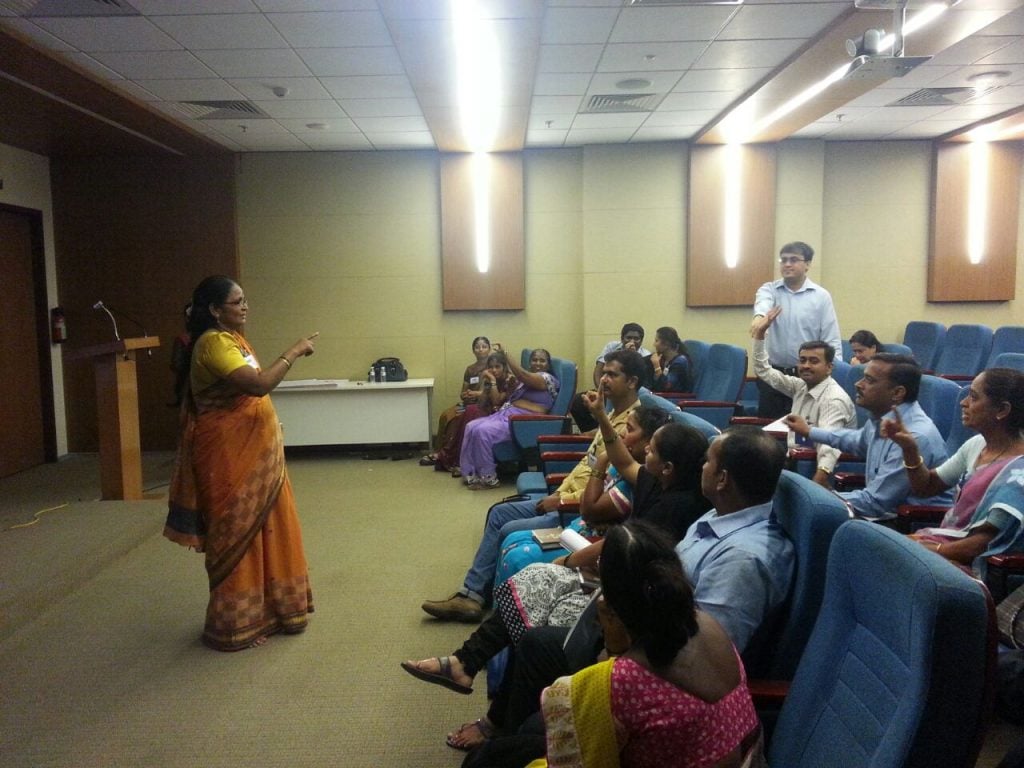At the heart of venture philanthropy is an engaged approach with the funded organisation. Capacity building of social purpose organisations is one of the main activities funders in this region engage in. Ideally what is provided by the social investor or resource provider matches what is needed on the side of the social purpose organisation. The social purpose organisations’ needs tend to come from internal parameters in the social purpose organisation, e.g. the development stage of the organisation, the management team, its social mission, business model and growth plans as well as the external environment, which shapes the entrepreneurial eco-system, economic stage of the country and the role of the government. Social investors then have different in-house capabilities to support capacity building and hence need to draw on third-party providers either paid, low- or pro-bono. This requires the venture philanthropy organisation to manage the third-party interactions.
The outcome of this relationship is then capacity building through a variety of tools such as strategic support, professional services and physical infrastructure, which aims to create value in two ways: firstly, real value for the social purpose organisation by helping them to achieve their social missions and secondly, value for the social investor or resource provider by increasing their impact.
To understand what works best, previous AVPN 2015 conferences outlined practices on building strong intermediaries to help SPOs and on leveraging skills-based volunteers. Beyond the conference, we will unearth and document further effective practices delivered by foundations, venture philanthropy funds, incubators/equity providers and intermediaries funding to build the capacity of various social purpose enterprises.
Here, AVPN presents Toolbox India Foundation’s capacity building strategy as an example of how professional volunteerism can be best leveraged to enable non-profit organisations in their social ambitions.
Organisational Portrait
Toolbox India Foundation works as a catalyst to provide strategic assistance to non-profit, growth-stage organisations through its portfolio of highly skilled, corporate volunteers. It was established in 2007 as an overseas extension of its Belgian counterpart, Toolbox Belgium. The original concept was first conceived when its founders noted the severe lack of management support within the non-profit community. They realised that this need could be provided for by drawing on corporate professionals to volunteer their pro-bono consulting services. Toolbox was therefore founded to serve as an intermediary platform that matches expert volunteers to its non-profit partners through a comprehensive assessment of both parties’ expertise and needs.
After establishing its base in Belgium, Toolbox sought to expand its activities abroad to achieve greater social impact in India. Sandeep Naik of General Atlantic Partners and Co-founder of Toolbox Belgium, Charles-Antoine Janssen, headed the launch of Toolbox in India, where they believed that the Belgian model could be adapted and applied. The branch has since gained significant traction in the region, collaborating with over 35 non-profit organisations and executing more than 50 projects in areas of health, education and women’s empowerment.
The high qualifications required from its volunteers and its cross-border approach are what differentiate Toolbox from other organisations in its field. While Toolbox engages in select professionals, Empact[1]—a similar intermediary based in Singapore—relies on a diverse set of volunteers such as practitioners, students and corporations, to offer a wide range of skills and services. Empact also offers greater flexibility to its volunteers in its hope to provide opportunities to as many individuals as possible. Toolbox’s services are similar to Pilotlight[2] –a capacity building charity operating in the UK– which functions in connecting professional volunteers to the social sector. Yet, since Toolbox has branched out into India, Toolbox is unique in its global approach in tackling social challenges.
From Belgium to India
Toolbox’s founders had always held long-term ambitions for global expansion; they strove to extend their initiatives beyond Belgium and implement more Toolboxes around the world. When Co-founder, Charles-Antoine Janssen, noted the large number of non-profits and social development problems in India, he decided that the country would be a good destination to commence in Asia.
Together with Sandeep Naik, Janssen proceeded to extend the Toolbox concept and methodology into India. Toolbox sought to introduce a new area of focus for the non-profit sector where social institutions were typically preoccupied with fundraising activities; it emphasised capacity building, over grantmaking, as a vital instrument in strengthening an organisation’s operations and outreach in the long-run. It was therefore necessary for Toolbox to explore whether non-profits in India were indeed ready to take on projects that focused on organisational strategy and sustainability, rather than principal functions such as fundraising.
The extension process thus began with an 18-month long incubation period, where the idea was tested. Toolbox saw its concept quickly adopted by non-profits that recognised its potential to help build organisational capacity and create strategic-collaborative platforms in the social sector.[3] Once this pilot programme was validated, Toolbox India was formally established with the requisite legal registrations in February 2011.[4]
Toolbox India maintains the same sectoral focus as its Belgian counterpart, with both organisations working to alleviate social issues that fall under the extensive categories of Education, Health, Livelihoods and Women’s Empowerment. However, as Vijaya Balaji–Board Director of Toolbox India–explains, the two countries’ distinct developmental contexts naturally necessitate a different set of approaches, with each branch’s sectoral focus ultimately stemming from the pre-dominant problems that exist within its respective geography.
The two Toolbox branches continue to work closely together, building stronger linkages and exchanging best practices. In both regions, Toolbox’s central purpose remains the same: to serve as an intermediary platform that employs skills-based volunteering in building organisational capacity and developing stronger social programmes on the ground. In venturing into India, Toolbox has made a marked step in working beyond the urban arena and into semi-rural communities.
Capacity building through higher skills – preliminary steps
In a field dominated by grantmaking, Toolbox believed it was necessary to highlight the need for management consulting amongst social purpose organisations. During its initial stages, Toolbox conducted strategy workshops for non-profits in various sectors, where it discussed how it could add value to their organisations. These active dialogues sought to emphasise the importance of the less tangible, but essential returns to capacity building.
Toolbox also worked to establish its position in India’s social sector by presenting its value proposition at avenues such as the Ashoka Summit and EdelGive forums. It solicited partnerships with non-profits that stood to gain from capacity building efforts and proceeded to receive referrals from past projects. Within the past two years, Toolbox’s efforts have prompted various non-profit organisations to reach out to discuss prospective partnerships.
To enable the right organisations to gain through the right volunteers, Toolbox needs to first select the organisations that could benefit and then also the right volunteers.
Selecting SPOs for Partnership
Due to the high opportunity costs involved, Toolbox India remains cautious about the non-profits it engages for partnerships. It actively seeks organisations driven by a strong leadership team open to changes and advice. Following its criteria, the needs of its prospective partners must also align with the resources that Toolbox is able to provide through its corporate volunteers.
Toolbox prefers not to gauge an organisation by its years in operation as it notes that long-running non-profits can often lack in areas such as process management, while new organisations may be more adept at utilising technology and key metrics[5]. Instead, Toolbox seeks to serve non-profit organisations in their growth-stage of development.
Vijaya Balaji defines the growth-stage as a period ripe for introspection and capacity building support.[6] By this stage, non-profits would have had the opportunity to pilot their concepts, seek grants, and consolidate their internal structures. Evidence of social impacts would also have surfaced at this point, thereby allowing impact assessments to be conducted. Toolbox is hence able to identify gaps in their organisation and assist them in scaling up their operations through consistent documentation, strategic planning and management.
Attracting Professional Volunteers
Given the level of professional services Toolbox offers to its non-profits, the volunteers it recruits are required to have at least 5 years of experience in disciplines such as general management, strategy, finances, human resources, communication & marketing, IT and legal advice. Toolbox also necessitates firm commitment from its volunteers; members must be willing to dedicate 8-10 hours per month and attend a minimum of 3 group meetings with Toolbox and its partners. To maintain the quality of its advisory services, Toolbox requests volunteers who are unable to commit the necessary time and effort to sign off and rejoin at a later period.
Toolbox volunteers are typically selected based on a referral system by existing volunteers, whereby each member who joins the organisation, is requested to bring in another volunteer. Toolbox notes that referred volunteers tend to be validated by his/her network, as they often stem from a similar professional background and are more likely to understand Toolbox’s operations and requirements. Toolbox also invites volunteer applications through its website, but the process largely occurs under closed networks, with Toolbox receiving only 10-15% of its volunteers from online channels.
Toolbox has also succeeded in securing a steady stream of volunteers through its collaborations with corporate firms that hosts their own employee engagement programmes. Under these partnerships, Toolbox is able to draw on its partners’ existing pool of professional volunteers, while its partners, in turn, are able to utilise the experience that their employees have gained in volunteering on projects.
In line with this strategy, Toolbox India has since partnered with EdelGive Foundation–the philanthropic arm of Edelweiss Financial Services–to magnify their collective impact in India. Toolbox engages Edelweiss’s employees to offer pro-bono, skills-based services to both Toolbox’s non-profit partners and EdelGive’s portfolio of investees.[7] This collaborative effort has greatly streamlined Toolbox’s process in sourcing for both its volunteers and non-profit partners.
How does Toolbox add value?
Toolbox services meet the needs of SPOs in a number of ways and moreover are measured by certain outcomes.
Meeting the Needs of SPOs
Toolbox India’s underlying aim is to go beyond providing non-profits with grants and infrastructure, and offer strategic advisory services to strengthen their systems and processes. It assesses the needs of its non-profit partners through detailed discussions with its committee members, and thorough analyses of their management and internal organisation structures.[8] Following this process, volunteer consultants will offer a range of professional advisory services that add strategic value to the organisation’s overall development. These areas include:[9]
- Strategy: Integrating a set of actions intended to differentiate the organisation’s value to society
- Business Plan: Constructing a one-year, detailed business plan based on targeted goals and impact assessment metrics
- HR Management: Attracting qualified staff and volunteers and evaluating their performance
- Finance: Managing cash flow, fundraising and revenue generation
- Communication & Marketing: Reaching key stakeholders with effective internal, external communication
As with its selection process, Toolbox places much attention on matching advisors to non-profits. It highlights that a bad match would result in a loss of valuable time and resources for its volunteers, non-profit partners, and the overarching organisation[10]. Toolbox has therefore delegated a Central Team primarily responsible for matching the expertise of consultants to the needs of the non-profit organisations.
Assessing Impact: Outcome of Capacity Building Efforts
While the results from strategic change management may not be immediately evident, Toolbox has continuously sought to track its projects’ progress, honing in on key focus areas and refining its evaluation techniques over the years. It has since adopted a proprietary, pre- and post-project assessment method that relies on expertise and intuition in measuring outcomes. The following are key elements that have featured prominently over past programmes:[11]
- Promotion of mission and vision of non-profits
- Reduction in costs
- Growth in program outreach
- Incubation of new programs
- Development of managerial and leadership skills and competencies
- Development of improved reporting systems and measurement metrics
- Improved governance and compliance protocols
- Financial sustainability of programs
These evaluation measures are also valuable for non-profits that do decide to return to Toolbox following their project’s completion. These organisations are then able to develop further programmes based on the tools that had been adopted and on information of where skills gaps still exist.
Challenges and Progress in Managing Volunteers
While volunteers see working with Toolbox as an opportunity to leverage their skills to make meaningful contributions to society, mismatched expectations and overloaded commitments may cause interest to wane over time.
Vijaya Balaji explains that Toolbox India has and continues to face challenges in ensuring its volunteers’ commitment to their respective projects and to the larger organisation. She notes that the organisation experiences a relatively high attrition rate, and continues to refine its approach in addressing these issues.
Volunteer-driven programmes, such as Toolbox, demand additional effort in managing volunteers, and ensuring that project execution timelines are adhered to. Given the challenging circumstances, it can be said that Toolbox has gained notable success in recruiting highly skilled professionals; till date, it has received over 100 volunteers, with approximately 40 deployed on projects at any given point in time.[12] In the following section, we highlight Toolbox’s approach in managing its volunteers.
1/ Scoping Projects, Introducing Volunteers and Reducing Volunteers’ Workload
Following past experiences, Toolbox notes that fluid timelines and scope have significant disincentive effects on volunteer’s interest. To ensure volunteer commitment, Toolbox sets project timelines and follow-up meetings each fortnight, through physical meetings at the Toolbox office on Saturdays or over conference calls with the Toolbox team and the project lead. Toolbox staff also undertakes responsibility in conducting thorough assessments, scoping the project, providing contextual background information, data access to volunteers and setting up site visits and interactions with the NPO teams. Additionally Toolbox guides its volunteers on the project execution, inducting volunteers to the Toolbox methodology and sensitising them to working in a non-profit environment.
Toolbox caps the total number of projects it engages in to about 20-25 a year to ensure that volunteers are not overburdened and that ample attention is dedicated to supporting its non-profit partners. On average each volunteer participates in 2 projects a year with a maximum length of 6 months. A minimum of two volunteers is deployed to each project, allowing volunteers to share the workload and draw on each other’s skills and expertise. Toolbox monitors its volunteers’ progress and ensures that projects are completed within the fiscal year by setting practical deadlines and timeframes.
2/ Managing Volunteer Operations Across Locations
Toolbox’s partners and activities span across both rural and non-rural regions in India; Volunteers are often based in city centers such as Mumbai and Delhi, while non-profits are located throughout Mumbai, Delhi, Kolkata and rural Maharashtra. In addition to active communication, Toolbox also insists that its volunteers conduct two field visits — be it in rural or urban areas — to immerse themselves in grassroots operations and gain a keen understanding of the organisation’s local context. Toolbox encourages its volunteers to approach their partners from the community’s perspective, as working with a non-profit organisation cannot be done insulated from ground realities. Toolbox therefore manages its operations across multiple locations in two ways:
Firstly, where there is a strategic and cultural fit, Toolbox tries to match volunteers equipped with the relevant skills to their non-profit organisation based on geographical proximity. This significantly reduces the travel time involved for both parties, making field visits and meetings more feasible.
Secondly, for projects in which volunteers are not based in the same location as their partnering non-profit, Toolbox aims to reduce its volunteers’ load by employing student efforts. Toolbox runs a strong internship programme that attracts both Indian and international students throughout the year. These students act as “foot soldiers” for the volunteers by collecting data and feedback that volunteers need, from their non-profit partners. In this way, volunteers’ responsibilities become significantly more manageable, thereby strengthening their commitment.
3/ From Corporate to the Non-profit Sector
While there is significant overlap between the social and corporate sectors, the non-profit sphere often calls for a different set of approaches from the corporate world. To enable its corporate volunteers to make the transition, Toolbox provides volunteers with an induction programme that includes an overview of India’s non-profit sector, sector-specific resources, and advice on consulting with the non-profit sector.[13]
Toolbox also manages its volunteers’ expectations by making sure that they understand the expected level of engagement and reasons why particular projects are being adopted by Toolbox. Toolbox ensures that from the very onset of the project, the expected deliverables are articulated such that there is no mismatch of expectations. Volunteers must also understand that non-profits may not necessarily be prepared to adopt new skills and technology. Project review meetings are frequently conducted to track each programme’s progress and quality of impact.
Toolbox maintains that each partnership between its volunteers and non-profits be a collaborative process. Volunteers must not simply assume the role of a consultant—diving into non-profits, immediately highlighting problems and directing solutions. Rather, both parties must exercise humility in their discussions when identifying problems and proposing solutions. To facilitate more meaningful discussions, Toolbox also advises its volunteers not to bombard non-profits with technical jargon and terminology.
In its efforts to keep motivations high, Toolbox presents its volunteers with opportunities to interact with other highly skilled professionals in contributing to a social cause in their community. The challenge to adapt to a non-profit environment also evolves into an incentive for corporate volunteers who seek opportunities for personal and professional development.
Conclusion
Over the years, Toolbox has established itself as a capacity-building intermediary in India. It has drawn on its experiences in both Belgium and India; constantly refining its practices to address challenges, and seeking to bridge the skills gap between the social and corporate sectors.
Through its partnerships with various non-profits, Toolbox has greatly honed its tactic in identifying the needs of social organisations early on. It has also greatly improved in managing project timelines and assessing its impacts. Most significantly, Toolbox has altered the non-profit landscape in India—allowing social purpose organisations to see the less tangible value of capacity building, to focus on developing systems, tools and processes rather than solely on principal functions of fundraising.
Toolbox has also made great strides in managing its volunteers–effectively streamlining its operations across India, regulating the demands on its volunteers and enabling their transition into the non-profit environment. Toolbox’s partnerships with corporate firms such as Edelweiss, have also been significant in structuring its process in sourcing for volunteers and non-profit partners. While Toolbox continues to face key challenges, its measures have gained evident ground in maintaining a continuous, sustainable supply of skilled volunteers.
Sources
Conversation with Vijaya Balaji, Board Director, Toolbox India, July 8, 2015
“Approach,” Toolbox India Foundation, available at http://www.tbxi.org/about/approach accessed July 14, 2015
“The Case for Pro Bono and Skilled-Volunteering in India”, Vijaya Balaji, Toolbox India Foundation
“Governance,” Toolbox India Foundation, available athttp://www.tbxi.org/about/governance accessed July 14, 2015
[2] http://www.pilotlight.org.uk/
[3] Vijaya Balaji, Toolbox India Foundation “The Case for Pro Bono and Skilled-Volunteering in India” p. 5
[4] Conversation with Vijaya Balaji on 8 July 2015
[5] Conversation with Vijaya Balaji on 8 July 2015
[6] Conversation with Vijaya Balaji on 8 July 2015
[7] Vijaya Balaji, ToolBox India Foundation “The Case for Pro Bono and Skilled-Volunteering in India” p. 4
[8] Vijaya Balaji, ToolBox India Foundation “The Case for Pro Bono and Skilled-Volunteering in India” p. 6
[9] http://www.tbxi.org/about/approach
[10] http://www.tbxi.org/about/governance
[11] Conversation with Vijaya Balaji on 8 July 2015
[12] Conversation with Vijaya Balaji on 8 July 2015
[13] Vijaya Balaji, ToolBox India Foundation “The Case for Pro Bono and Skilled-Volunteering in India” p. 8
This work is licensed under a Creative Commons Attribution-NonCommercial-ShareAlike 4.0 International License.
&nbstring-to-replace





















